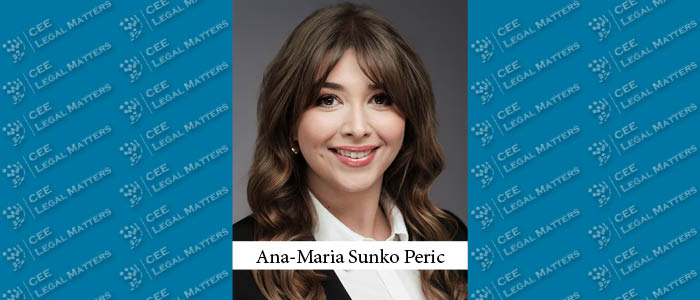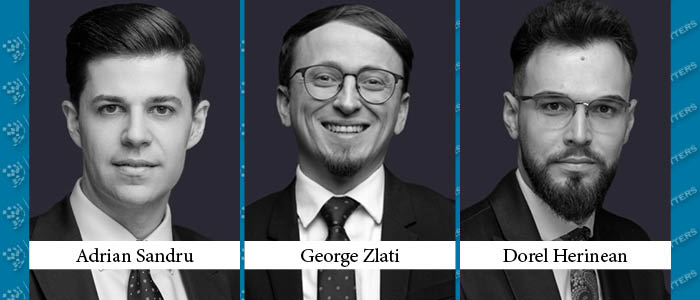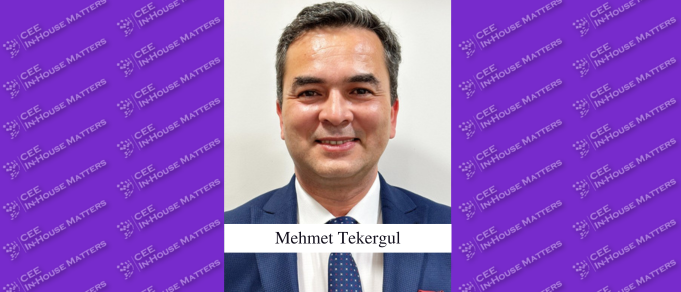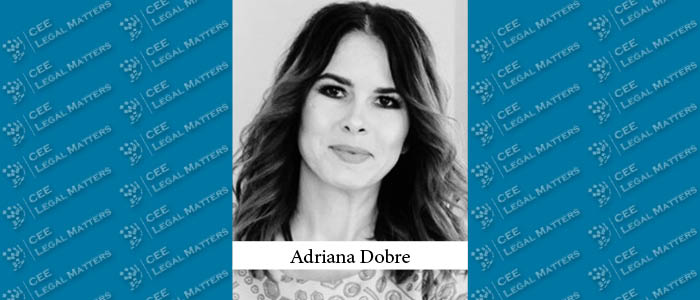In May, 2015, Vasil Kisil & Partners announced that disputes specialist Andriy Stelmashchuk had been elected the firm’s new Managing Partner – becoming the first Managing Partner who was not among the venerable firm’s founders. The change coincided with the introduction of what the firm described as “a new corporate identity,” which the firm claimed reflects “the firm’s development strategy and key values of the brand: a national law firm operating to Western standards and leading the changes and innovative solutions.”
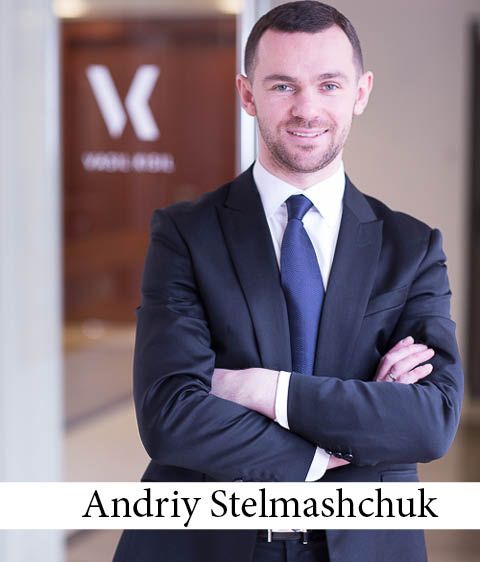 Outgoing Managing Partner Oleg Makarov said he was especially proud of the firm’s commitment to a management transition as a normal part of business: “The succession of management to a partner who, for the first time in the history of the Ukrainian market, is not a founder of the firm but has actually grown up inside it as a lawyer and a professional is both a challenge and a chance. The strategies we have approved and the goals we pursue now call for a new vision and for changes that only Andriy can handle.”
Outgoing Managing Partner Oleg Makarov said he was especially proud of the firm’s commitment to a management transition as a normal part of business: “The succession of management to a partner who, for the first time in the history of the Ukrainian market, is not a founder of the firm but has actually grown up inside it as a lawyer and a professional is both a challenge and a chance. The strategies we have approved and the goals we pursue now call for a new vision and for changes that only Andriy can handle.”
We caught up with Andriy Stelmashchuk to see how these changes had played out over the first seven months of his leadership.
CEELM:
You were the first non-founding partner elected as Managing Partner of VKP. How did that happen?
A.S.: Actually it was a surprise to me as well. I was elected at the end of April this year, but as late as March I would never have imagined that we would have changed our managing team. The partners had had discussions about how to develop our business and what our priorities should be for next year, and what should be changed, and we drafted a plan. We discussed it at a partners meeting, and it was obvious that we needed a person with a fresh look to implement this specific plan. Oleg Makarov, who was the Managing Partner for the last nine years, is transferring his managerial experience to me and other partners. His support and assistance can be hardly overestimated.
I wouldn’t say it’s an easy task to be a Managing Partner in a firm like this one, but when you trust your partners as yourself and have a strong back office team, you can make real changes, because you have people who can help you.
CEELM:
This must have been a substantial proposal – a significant change you were proposing. What was it?
A.S.: Yes, it was. We significantly changed the way we structured our teams. Before we had departments which had what appeared to be a Chinese Wall, so all the work was concentrated within departments.
We broke down the walls between the departments and made the teams more flat. Now, for example, when a Partner from Real Estate has a dispute, he can engage a Counsellor or a Senior Lawyer from the disputes resolution team who is good at real estate disputes and they can work together without a Partner from the dispute resolution department – unless, of course, the case requires it.
And that was a significant change, because before, regardless [of] who the contact partner of the project was, all the work was transferred to a specific department, and the partner from that specific department took care of the work. It’s a quite significant change for our culture of management. And this change is delivering good results, actually, because first, clients have the same contact person, and you don’t have to rebuild relationships from scratch, and second, you can make your services less expensive and you can compete better on the market.
And it makes our team stronger because people interact, share experience, and find better solutions.
CEELM:
Were you asked to create this proposal, or did you sit down together and say this is something you need to do?
A.S.: It actually happened when several partners abruptly left the firm in 2014. To our own surprise, this change brought a new atmosphere, new fresh air to the firm, and we started to rebuild. We said, “OK, this is the way to go, and we should look for many new opportunities to cooperate and more ways of working together to service our clients.”
CEELM:
You’ve referred to these changes as being part of your plan to operate according to “Western” standards. How else are you doing that?
A.S.: We’ve operated to Western standards from the time we were set up – for over 20 years. In 1992 there were two really big law firms in Ukraine: Baker & McKenzie, which did contractual/commercial work, and VKP, which did Dispute Resolution work, and we communicated closely and frequently between us. So we were quite well educated by Baker & McKenzie on how to manage a firm, and on how to stay ahead of trends on the local and global legal markets. Of course partners read clever books on managing a law firm, but it’s usually better to have a person you can ask for how things work in practice rather than on paper.
CEELM:
So when you say you operate on Western standards, what does that mean?
A.S.: First of all it means that we pay a lot of attention to quality of service. Not only legal service, but servicing clients, and client relations. We have to make sure that the results of our work will be well-understood for Western clients and will meet the highest international standards. So we should speak the same language – by which I mean not only English, or German, or Russian, or anything else, but also the style of communication to which they are accustomed. That’s second. Third is the ethical aspect of it. Eastern Europe – and Ukraine particularly – is not an easy market, and your counsel and his legal expertise is not always enough to get a result – but we stand on the position that there should be zero tolerance of corruption or any other activity that is not legal, and we mean it both in communication with state authorities (and the courts in particular), but also internally. We pay all taxes, and we pay what’s called “white” salary – we don’t pay salary in envelopes handed out under the table. Which not everyone here can say. We have never had “hidden partners” in our business, and we never will. All our partners are on our website. If one decides to leave the firm and serve the country, it is his choice.
So ethical aspects have always been important for us, and particularly these days, when our country is trying to fight against corruption, it’s important that we remain a benchmark in this respect as well.
CEELM:
You’ve been Managing Partner for seven months. How has that been so far?
A.S.: It was very challenging. It was quite difficult, because managing a team of 3, 5, or 7 associates is one thing – I’ve had that kind of experience before. But that’s absolutely different than managing a firm, when you have so many different obligations. You have to make sure that there is communication and cooperation between all people. The core of our business is people. It is all about people, and we have to make sure that our people are satisfied with business processes, with remuneration, with working conditions, etc., to make sure that they’ll be polite and focused when providing services to our clients.
CEELM:
What is your personal practice?
A.S.: I do tax litigation, and I’ve been practicing White Collar Criminal Law for a while, and I’m now focusing on developing this practice in our law firm, because it’s increasingly important here. More and more firms have this practice in Ukraine. If you look back five years ago you would hardly find any big law firms or law firms in the top twenty with this practice. This used to be the domain only of law boutiques or smaller firms.
CEELM:
Were you able to keep your own practice going as well?
A.S.: Yes, sure. That was one of the requirements. That’s what is different, compared to what we had before, because while before we had a target of only 20% of a partner’s target for the Managing Partner, now its different, and we don’t have any reduced expectation for a Managing Partner. And I believe it’s possible to combine both management and client service responsibilities. You have to be heavily involved in doing business to make sure you stay involved with what’s happening with your clients and what’s happening on the market.
CEELM:
It sounds like a lot of work!
A.S.: Yes! (laughs). It is. Quite a lot.
CEELM:
Are you Managing Partner for a specific time?
A.S.: Our Managing Partners are elected for two-year terms. The succession plan was newly introduced by us to a conservative Ukrainian legal market in May. This is uncommon for Ukraine, where usually the Managing Partner is one of the founders of a firm, and he or she manages the firm until he or she retires or goes into public service. Actually, as I wasn’t planning on being elected Managing Partner before it happened, and, frankly speaking, it was never my primary goal, I’ll be absolutely glad to implement my plan at this position and at some point, when the time comes, transfer these duties further.
CEELM:
You’re younger than many of your counterparts at other firms. Is your management style different, and does it reflect your youth somehow?
A.S.: It depends on the situation, of course. Initially I have trust in people, and I treat each person as trustworthy. I prefer to take risks and I prefer to delegate some of what might seem to be partner responsibilities to associates. I believe the sooner you empower them, the sooner you will have new partners.
Our policy has always been to develop and trust young people. We develop partners from inside, and we do not hire partners or senior associates. We tend to invite people to join our firm when they are students, and to make sure we have good people next to us and then train them to our standards and levels of service. And between me and good people there is not such a large gap, which makes it easier to communicate.
Of course, I’m the age of many associates in my firm, so many of them went to University with me, and now I’m their Managing Partner. Some are younger, but not substantially. We have good mutual understanding, because we do not have a big generation gap.
CEELM:
What would you say is your selling point to clients? What’s the VKP difference?
A.S.: We sincerely want to understand the core of our clients’ business and industry. Just to make sure we are not simply producing legal advice, but are actively adding value to our client’s business. Today clients are very well-educated – sometimes better educated than their counsel. We have to make sure we’re not just offering things that are common sense, but are actually diving deep into our client’s matters, to make sure the client is happy, and not paying for information he can just google. And we sincerely believe in it and are paying attention to it, and in our internal meetings we talk a lot about the fact that, whether you are a senior lawyer or a junior lawyer, you have to be focused on your client’s business. You have to dig up what your client is doing. If you have a chance to visit your client’s factory or a production facility, you have to do it, just to determine what your client feels every day. My colleagues do just that.
CEELM:
Have you seen positive response and more business coming in in your eight months at the helm of VKP?
A.S.: Yes. At first we focused on certain business processes, and in particular on improving our financial discipline. I’m strict in this respect, and this approach leads to good business. And I personally pay a lot of attention to meeting with clients just to keep communicating and making sure that we are on the same page and still understand what our clients are doing and what problems they are facing. Most of our clients are international, so we focus on developing relations with our best friends from abroad, including law firms in the UK, EU, and USA.
This Article was originally published in Issue 2.6. of the CEE Legal Matters Magazine. If you would like to receive a hard copy of the magazine, you can subscribe here.






















